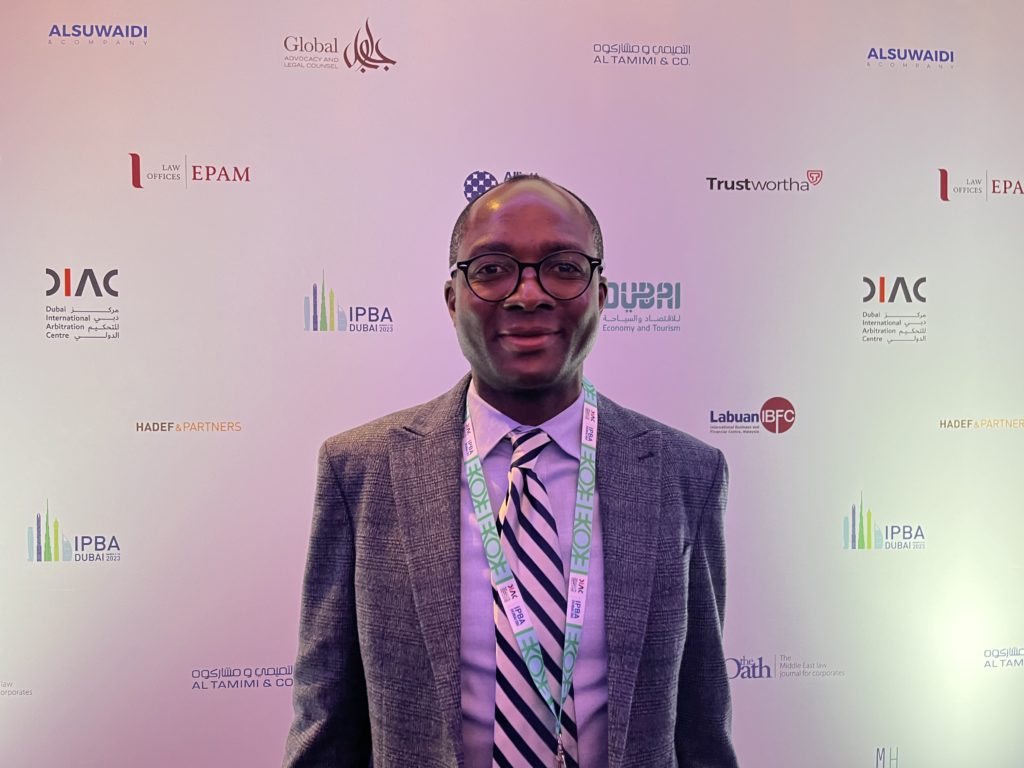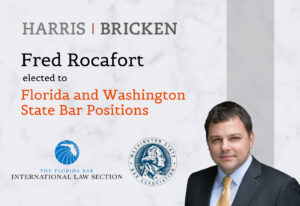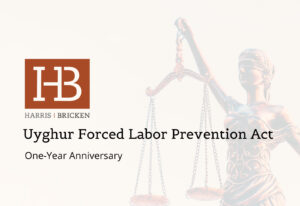IPBA Dubai, Day 1
After a three year Covid-19 induced break, the Inter-Pacific Bar Association (“IPBA”) kicked off its (31st) Annual Meeting and Conference in Dubai today. This was the first IPBA in-person event since the outbreak of the pandemic. Not surprisingly, Day 1 session topics followed and refleced the conference theme, “One World: Law & The Environment Beyond Covid.” The keynote session focused on the strategies and technologies deployed by the court system in each speaker’s jurisdiction to adapt to the Covid-19 pandemic and to enable their court systems to continue to function uninterrupted. This session had speakers from Dubai, Hong Kong, Malaysia, Kuwait, and the United Kingdom.
The keynote session was followed by two sets of concurrent committee sessions. I attended the “ESG – Trade & Sustainability” and “The Next Generation Lawyers: Becoming Top 40 under 40” sessions. In the “ESG-Trade & Sustainability” session, the panel discussed key ESG and sustainability developments in their respective jurisdictions and what companies in those jurisdictions are doing to meet their compliance obligations. The panel was composed of lawyers from Belgium, the United States, Peru, Argentina, Singapore, and Malaysia. I found it particularly interesting to be able to get both “developed nations” and “developing nations” perspectives on how ESG issues are handled.
The session on “The Next Generation Lawyers: Becoming Top 40 under 40” provided strategies on what younger lawyers can and should be doing to develop their practices. The panel make up for this session was also geographically diverse, with young lawyers from India, Singapore, Germany, Dubai, and Poland speaking about their views on marketing a legal practice in their own countries and internationally. That diversity in background provided valuable insights into some of the issues young lawyers in those jurisdictions experience in their journey to develop their competencies in the profession.
Overall, Day 1 was a big success.
IPBA Dubai, Day 2
A huge number of sessions were scheduled for the second day of this big conference. I chose to attend the following four sessions:
- “Friend-shoring”: New Challenges to Global Value Chains and Developing Countries
- China New Laws
- Is China Still an Important Destination for Global Investment?
- Sanctions & Conflicts of Laws – How Multinationals Should Navigate Conflicting Regulations
I picked these sessions because they sounded interesting and directly relevant to both my practice and that of my law firm
The “Friend-shoring”: New Challenges to Global Value Chains and Developing Countries session focused on the evolution of supply chains from outsourcing to nearshoring, and to its latest iteration: friendshoring. See Moving Your Manufacturing out of China: Choose a “Friend”. The panel for this session was composed of lawyers from Belgium (representing the European Union perspective), the United States, China, India, Mexico, and Japan. Clearly, these countries were not chosen at random and it soon became clear that the U.S., EU, and Japanese lawyers were there on behalf of “buyer” countries and the Chinese, Indian, and Mexican lawyers were there as “seller” countries. I left this session more convinced than ever that we should expect to see even more manufacturing moving from China to countries like India and Mexico over the next decade. I found it interesting how friendshoring and ESG (environmental, social, and governance) are linked when it comes to manufacturing and how companies in the United States, the EU, and Japan are realizing that just pushing the China button for their manufacturing will negatively impact their ESG and even their reputations. See Doing Business with China and Your Reputation Risks.
The China New Laws session focused on providing updates on recent legal developments in China that impact foreign investment and international trade. I found the discussion on China’s recently enacted export control laws especially interesting. This law became effective and, according to the Chinese lawyer panelist, it established a unified export control system whose stated goals are to safeguard China’s national security and interests. Though the law initially did not appear to have much bite, the Chinese government used it last month to add Lockheed Martin Corporation and Raytheon to its Unreliable Entity List, banning them from importing, exporting or investing in China. This was the first time such measures had ever been taken against an American company. Though the Chinese lawyers made a big deal of this Chinese government action, I just kept thinking that the United States’ own export control laws relating to the defense industry very likely meant that neither of these American companies would be much (if at all) impacted by the CCP deeming them unreliable. The fact that these sanctions came down only days of China’s infamous balloon incident also makes me question its importance.
The “Is China Still an Important Destination for Global Investment?” mostly involved the Chinese lawyers talking about recent Chinese government initiatives intended to make China a more favorable place for foreign companies to conduct business. Though the speakers listed a whole host of initiatives intended to make China more favorable for foreign companies, I get the strong sense that China’s geopolitical relations with the West and with Russia will have a greater impact on the extent to which foreign companies do business in China than any Chinese government initiatives.
The “Sanctions & Conflicts of Laws – How Multinational Should Navigate Conflicting Regulations” session focused on the geopolitics of sanctions and it also provided best practices for navigating conflicting sanctions regulations. I found the discussion on how compliance with one country’s sanctions regime could trigger a violation of another country’s sanctions regime to be particularly interesting, especially because with all that is happening with Russia and China I forsee these sorts of sanctions conflicts increasing.
On Day 3, I will be moderating the panel on “Trade Sanctions and the Future of World Trade.”





















